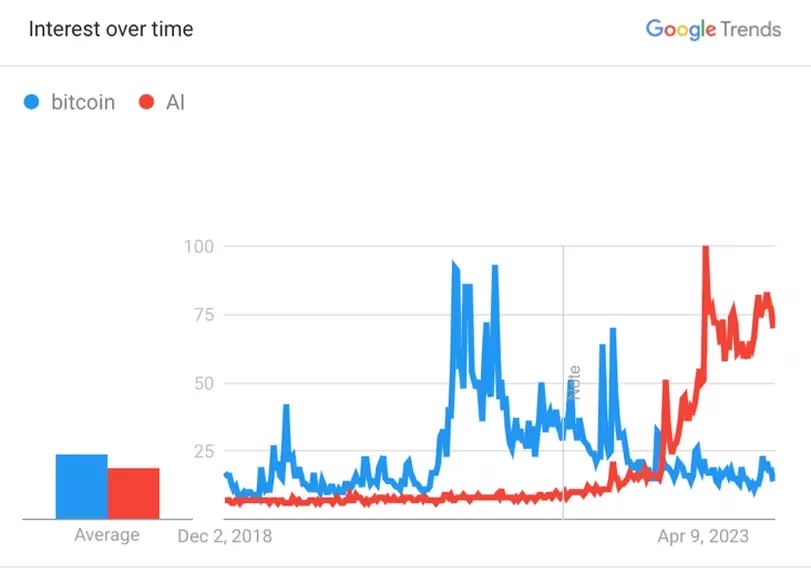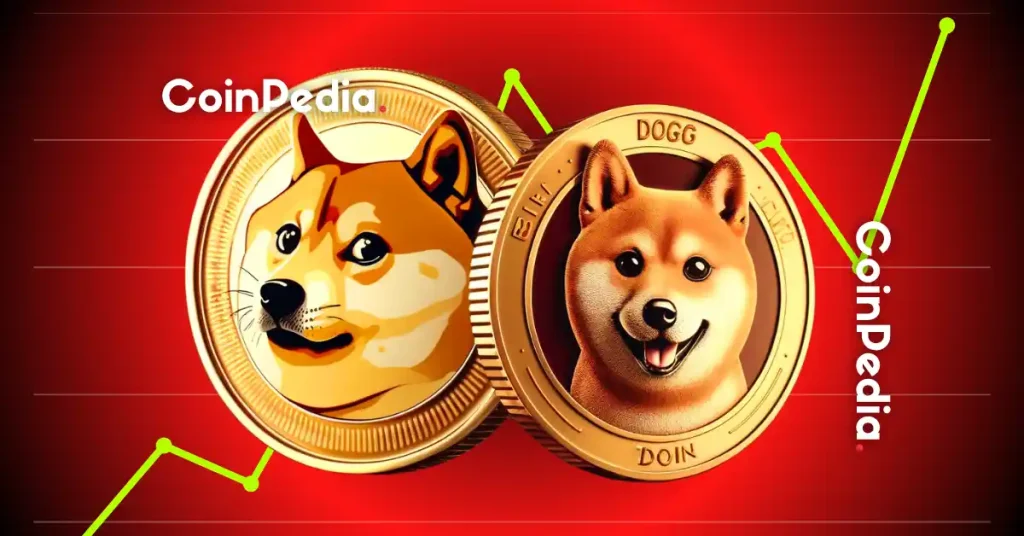
Let me first say what is obvious. The drama surrounding Sam Altman has made even the wildest price movements of crypto assets seem bland and boring.
I was fired! Came back! I’m fired! I changed jobs to Microsoft! Came back! Over the course of 96 hours, Altman’s fortunes seemed to change more times than Bitcoin (BTC) soared and crashed.
As of this writing, Sam Altman is once again the CEO of OpenAI. Details are still unknown. Why did the board betray him? What will the internal investigation reveal? How will his new management change? There are many questions, and it will likely take some time before we know the answers.
But in a way, it doesn’t matter. More precisely, CoinDesk’s Most Influential People of 2023 is not concerned with the recent turmoil.
“CoinDesk’s Most Influential” is published by CoinDesk every year at the end of the year. We will highlight iconic figures from this year’s “Most Influential People in Cryptocurrency 2023.” Click here for the list of 50 people “Presenting CoinDesk’s Most Influential 2023”.
Unleash the magic of AI
Even if Mr. Altman never worked again, he would not only have been the most influential person in Web3/cryptocurrency in 2023, but the most influential person in the wider world. There is no doubt about it. Thanks to ChatGPT, the AI genie has come out of the lamp and the world has changed.
The impact of AI on Web3 is sometimes obvious and sometimes elusive. For much of 2023, everyone in the tech world was talking about AI, and it seemed like crypto assets had been pushed out of their former positions (and the bear market just added on). The weekly AI meetup has replaced the Bitcoin meetup. Countless blockchain projects have “shifted their focus to AI.” VCs have poured billions of capital into AI startups.

 Search interest level for Bitcoin (blue) and AI (red)
Search interest level for Bitcoin (blue) and AI (red)Let’s take a look at the Google search trends for Bitcoin (blue) and AI (red). The lines were crossed shortly after Altman released ChatGPT. This graph says more than words.
But I want you to take a closer look. It is tempting to follow the “crypto assets vs. AI” formula, but the truth is more complex, and a surprising and healthier relationship emerges.
Fusion with crypto assets
At a recent crypto conference, I was a judge for a hackathon, and nearly every project involved involved AI in some way. This does not mean that the project was an “AI project”. The Web3 project had a vision of decentralization across a variety of fields and use cases, but most of them leveraged AI to scale faster, more efficiently, and more easily. Ta. Isn’t this one of the fundamental goals of crypto assets?
Think of the many jobs Web3 entrepreneurs do. Coding smart contracts, creating business plans, launching websites, creating logos, market research, competitive research, planning marketing campaigns, developing tokenomics, writing blog articles, error checking, networking, and more. We can support all of these.
As Haseeb Qureshi, managing partner at Dragonfly, put it, AI will “dramatically increase productivity. “You will be able to do it.” And while it’s unfair to give Altman all the credit (or responsibility) for the impact of AI, ChatGPT clearly puts him in the lead.
While AI has breathed life into the stock market, it has also spurred a new category of projects called “AI and blockchain fusion.”
Indeed, many of these, from SingularityNET to Fetch.AI, were launched before 2023, but the rise of generative AI has created an urgent need for new solutions. Will decentralized AI enable cherry-picking?
world coin
Ironically, perhaps the most prominent AI/crypto fusion project comes from none other than Sam Altman himself. It’s Worldcoin.
“Introducing WorldCoin, a new crypto asset that will be distributed equitably to as many people as possible,” Altman tweeted in October 2021, unveiling “The Orb,” a glowing chrome sphere that scans your eyeballs. did.
Once they prove they are a human (rather than an AI bot), they can earn crypto assets as a form of universal basic income.
The ultimate vision is for super-advanced AI to work on behalf of humans to create wealth that should be distributed to everyone, not just the already wealthy tech elite.
As for eye scans, Altman and WorldCoin’s parent company, Tools for Humanity, view them as a necessary evil. They believe that as AI becomes more and more capable, the only way to prove you are human will be through biometric data.
Just before World Coin was officially launched in July of this year, I went to Berlin and had my eyeballs scanned using The Orb. We met with Tools for Humanity CEO Alex Blania to learn more about how The Orb works, and spoke online with Sam Altman.
Reference article: The story behind the establishment of World Coin: The inside story of Orb[Part 1]— “I know it’s painful. It costs money. People will think it’s weird.” CEO Brania
Altman said there will still be jobs in a post-AI world, and there will probably be better jobs than there are now, but “we’re going to need some kind of cushion during the transition.” .
Altman sees WorldCoin as that cushion. In 2019, it was just an idea. As Branier told me in Berlin, it was originally conceived as the “Bitcoin Project,” with the goal of providing free Bitcoin to everyone on the planet.
amazing spread
In 2020, they created a prototype. The rollout began in 2021 and 2022. And in July 2023, World Coin will be officially launched. Three days later, Altman posted a video and tweeted that “impossible lines are forming around the world” and “Right now, 1 person gets verified every 8 seconds.”
The breakneck pace continued. Four months later, the number of registered users of World Coin has already reached 2.5 million. No matter what you think about the merits of WorldCoin, you have to admit that it is an amazing achievement in terms of widespread adoption of crypto assets.
For a quick comparison, Dogecoin (DOGE), which has experienced several booms and spread over its 10-year history, has approximately 5 million wallets. World Coin reached half of that amount in four months.
Even if Altman had played no role in ChatGPT or OpenAI, his bold rollout of WorldCoin alone would have earned him a spot on CoinDesk’s Most Influential People of 2023.
What’s more, Altman, Branier, and the team at Tools for Humanity have effectively created SSID (self-sovereign identity), which has long been one of the crypto industry’s holy grails. Even if the “coin” part of WorldCoin fails (the token is not yet available in the US for regulatory reasons), the privacy-protecting “World ID” will unlock value and use cases around the world.
Altman knows there are people who are skeptical of WorldCoin. But as he told me, once people get hold of World Coin and World ID and start using them, it will create a domino effect that will ultimately address larger concerns. I’m sure.
“What really works is when the first million people, the early adopters, the people who lean in, convince the next 10 million people, and those next 10 million people are more like amateurs. .And they convince the next 100 million people, and those 100 million real amateurs convince the other billions,” Altman said.
Reference article: The secret story behind the establishment of World Coin: The inside story of Orb[Part 2]“The first 1 million people convince the next 10 million people, who in turn convince the next 100 million people, and the 100 million people convince the remaining billions.” “Convince people,” Altman said.
And those billions of amateurs will almost certainly be affected by AI in ways we cannot yet predict… No matter where Sam Altman works.
|Translation and editing: Akiko Yamaguchi, Takayuki Masuda
|Image: NFT image of Sam Altman (Shavonne Wong)
|Original text: Sam Altman: The World That Sam Made
The post Sam Altman: The World Sam Created[Most Influential People 2023]| CoinDesk JAPAN appeared first on Our Bitcoin News.

 1 year ago
108
1 year ago
108














 English (US) ·
English (US) ·